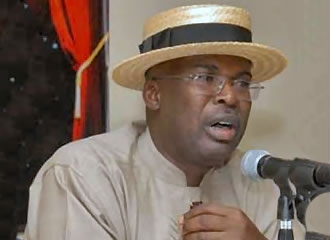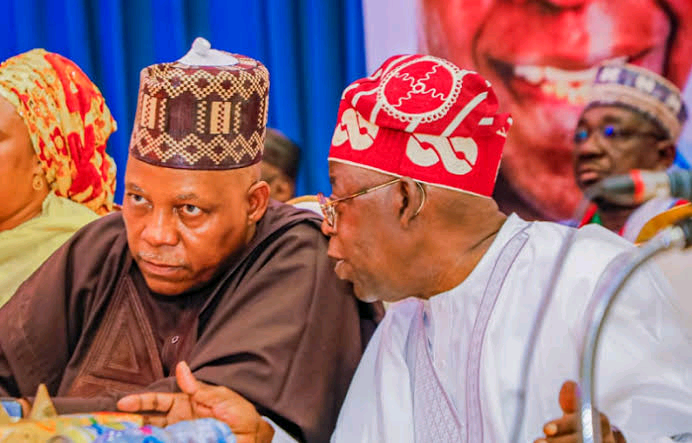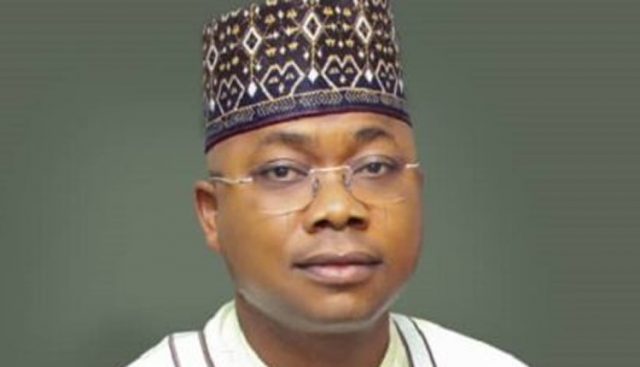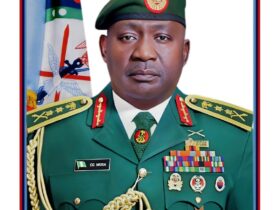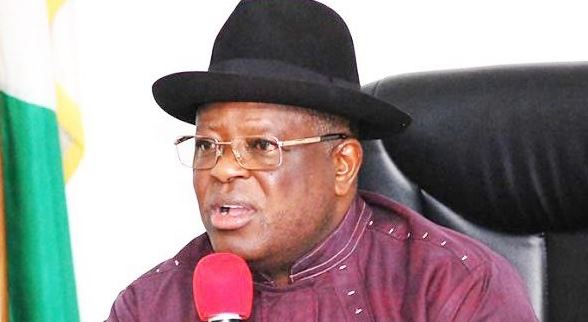President Bola Tinubu and Vice President Kashim Shettima have asked the Presidential Election Petition Court (PEPC ) to disqualify the Presidential candidate of the Labour Party ( LP) Peter Obi from participating in the re-run election if the February 25, 2023 presidential election is nullify.
This is contained in their final written addresses prepared by the leader of legal team of 2nd and 3rd respondents Chief Wole Olanipekun, SAN, to Obi’s petition challenging the election.
Olanipekun prayed the court to declare that “Obi is constitutionally barred from participating in any election, in the very unlikely event that the election of 25th February, 2023 is voided, as the only candidates constitutionally prescribed to contest any subsequent election shall be Tinubu and the candidate of the PDP, Atiku Abubakar who came second, by scoring the next majority of votes in the highest number of States (19 States), to the 1st petitioner’s 16 States, and also coming second by plurality of votes, having scored 6,984,520, far and above 1st petitioner’s 6,101,533 votes.”
He said that Obi’s name was not in the Labour party membership register (tendered as his evidence in court) when he contested the poll, adding he was still part of the PDP.
President Tinubu and Shettima made the request in alternative. Their legal team said if the election would by chance cancelled by the court as requested by Obi, then he should be barred from contesting the rerun election having allegedly violated several electoral laws including the period he joined the LP from the Peoples Democratic Party (PDP).
In his response Obi’s team stated in their court processes that Obi was granted a “certificate of waiver” by LP to contest the polls.
Tinubu and Shettima’s team also explained how Obi “woefully failed” to discharge the burden of proof binding on him to show that the Independent National Electoral Commission (INEC) rigged the polls in their client’s favour on February 25.
His lawyer Chief Olanipekun maintained that Obi and LP called a total of 13 witnesses against his election victory, alleging their evidence and testimonies were characterized by hearsay and irrelevance that would not convince the court to void his victory.
Recall that on March 1, INEC’s Chairman Professor Mahmood Yakubu announced Tinubu as winner of the polls with 8,794,726 votes while Atiku Abubakar and Peter Obi of the Labour Party were said to have scored 6,984,520 votes and 6,101,533 votes, respectively.
Afterward, Obi and LP challenged the outcome of the election on March 20 by filing a petition seeking the nullification of the declaration of Bola Tinubu as president-elect, and listing several grounds against the president and INEC.
On ground one, the petitioners’ legal team led by Dr. Livy Uzoukwu SAN alleged that Tinubu should be disqualified from the election over a United District Court judgement which forced him to forfeit 460,000 US dollars suspected to be proceeds of drug trafficking.
They told the court that his running mate now Vice President Shettima allowed himself to be nominated as the Vice Presidential candidate to Tinubu when he was still a senatorial candidate for the Borno Central Constituency at the time the APC held its presidential primary election in July 2022.
On Ground 2, they alleged that the election of Tinubu should be declared invalid by reason of corrupt practices or non-compliance with the provisions of the Electoral Act 2022, insisting that it cannot stand because INEC made the deployment of the Bimodal Voter Accreditation System machine mandatory for the accreditation of voters and real-time uploading of results but failed to do so on election day, contrary to the electoral umpire’s own laws and regulations.
On ground 3, Obi claimed that Tinubu was not duly elected by majority of the lawful votes cast during the presidential election and did not get 25 percent of the votes cast in the Federal Capital Territory as required by Section 134 of the 1999 Constitution which reads: “(1) A candidate for an election to the office of President shall be deemed to have been duly elected, where, there being only two candidates for the election – (a) he has the majority of votes cast at the election; and (b) he has not less than one-quarter of the votes cast at the election in each of at least two-thirds of all the States in the Federation and the Federal Capital Territory, Abuja.”
They urged the Court to declare the election of Tinubu invalid seeking the following prayers:
“1) That it be determined that at the time of the presidential election held on February 25, 2023, Tinubu and Shettima were not qualified to contest the election.
“That it be determined that all the votes recorded for Tinubu (2nd Respondent) in the election are wasted votes owing to the non-qualification/disqualification of Tinubu and Shettima.
“ That it be determined that Tinubu having failed to score one-quarter of the votes cast at the presidential election in the Federal Capital Territory, Abuja was not entitled to be declared and returned as the winner of the presidential election held on 25th February , 2023.
“In the alternative to 2 above: an order cancelling the election and compelling INEC to conduct a fresh election at which Tinubu, Shettima and APC shall not participate.
“In the alternative to 1,2,3 above, I) that it may be determined that Tinubu was not duly elected by majority of the lawful votes cast in the election for the office of the president and therefore the declaration and return of the 2nd Respondent as the winner of the Presidential Election’ are unlawful, unconstitutional and of no effect whatsoever.”
Before the PEPC adjourned for adoption of the final address by parties, Obi had produced several witnesses including a cloud engineer, INEC presiding officers, cyber security expert and a professor of Mathematics who claimed that 18,088 polling unit results on the INEC Result Viewing (IReV) portal were blurred, thereby shortchanging Obi by 2.5 million votes.
But Tinubu’s team had produced one-star witness, Senator Michael Opeyemi, to discountenance Obi’s submissions of FCT, IREV and LP membership.
In his final written address dated July 14, Olanipekun took on the evidence of the Professor of Mathematics, citing his terms of reference which included carrying out data analysis on the election result State by State.
He posited that for the witness to give more consideration to Benue and Rivers state is proof that his evidence lacked foundation and could not have been accurate.
On the 18,088 blurred polling unit results he downloaded from IREV, the respondents lawyer countered the professor, saying he admitted during cross-examination that he never sighted the hardcopies of Form EC8As in the affected polling units.
“Of course, the lack of capacity of this witness who has no background or learning in law is obvious. The totality of this analysis, demonstrate that even the terms of reference, which is the foundation upon which the entire activities are predicated, are crooked and devoid of firmness.
“In any event, though the witness agreed that it is the image of the form EC8A that is usually uploaded to the IREV, he surprisingly admitted that he never sighted the hard copies.
“On this account, the purported analysis of the result cannot be taken with any seriousness, as the professor admittedly refused to accord any cognizance to the primary data, being the form EC8A,” the learned silk argued.
Olanipekun told the PEPC that Obi’s petition did not talk about ballot box snatching, ballot box stuffing, violence, thuggery, vote buying, voters’ intimidation, disenfranchisement, interference by the military or the police, and such other electoral vices, adding that “the crux of their grouse this time around, is that while the presidential election was peacefully conducted all over the country (as corroborated by their primary witnesses) and the results accurately recorded in the various Form EC8As, some unidentified results were not uploaded electronically to the INEC Election Result Viewing (IREV) Portal.”
He added that it was wrong for the petitioners to be hyping the electronic transmission of votes when INEC’s electoral laws also contemplated manual transfer of votes as option.
Furthermore, Tinubu’s lawyer argued that the “remote” contention of the petitioners that his client’s election should also be cancelled for not scoring 25% (or one-quarter) of the votes recorded in the Federal capital territory, Abuja (FCT), is not backed by any fact known to law.
He drew the court’s attention to the fact that the United States Electoral College votes are shared according to the respective populations of the States, without any preference being allocated to Washington DC, which is the State capital.
He contended that the FCT question should also be interpreted with Section 299 of the 1999 constitution which states that “The provisions of this Constitution shall apply to the Federal Capital Territory, Abuja as if it were one of the States of the Federation.”
He stated it would be chaotic if the court voids the majority of lawful votes Tinubu garnered in other states due to his failure to score 25 percent in FCT.
“With much respect, any other interpretation different from this will lead to absurdity, chaos, anarchy and alteration of the very intention of the legislature.
“Our courts have always adopted the purposeful approach to the interpretation of our Constitution, as exemplified in a host of decisions, including but not limited to Nafiu Rabiu v. State (1980) 12 NSCC 291 at 300-301, Marwa v Nyako (2012) 6 NWLR (Pt. 1296) 199, 306 – 307, ADH Limited v AT Limited (2006) 10 NWLR (Pt. 986) 635, 649, Awolowo v. Shagari (supra), Abraham Adesanya v.President, Federal Republic of Nigeria (1981) 12 NSCC 146 at 167-168; A.G Abia v. A.G Federation (2002) 6 NWLR (PL 763) 265 at 365,” he added.
He also maintained that forfeiture of monies traced to the bank account of Bola Tinubu was a civil proceeding and the president was not convicted.
Furthermore, Olanipekun urged the court to declare that “Obi is constitutionally barred from participating in any election, in the very unlikely event that the election of 25th February, 2023 is voided, as the only candidates constitutionally prescribed to contest any subsequent election shall be Tinubu and the candidate of the PDP, Atiku Abubakar who came second, by scoring the next majority of votes in the highest number of States (19 States), to the 1st petitioner’s 16 States, and also coming second by plurality of votes, having scored 6,984,520, far and above 1st petitioner’s 6,101,533 votes.”
He maintained that Obi’s name was not in the Labour party membership register (tendered as his evidence in court) when he contested the poll, adding he was still part of the PDP.
But Obi’s team stated in their court processes that he was granted a “certificate of waiver” by LP to contest the polls.




